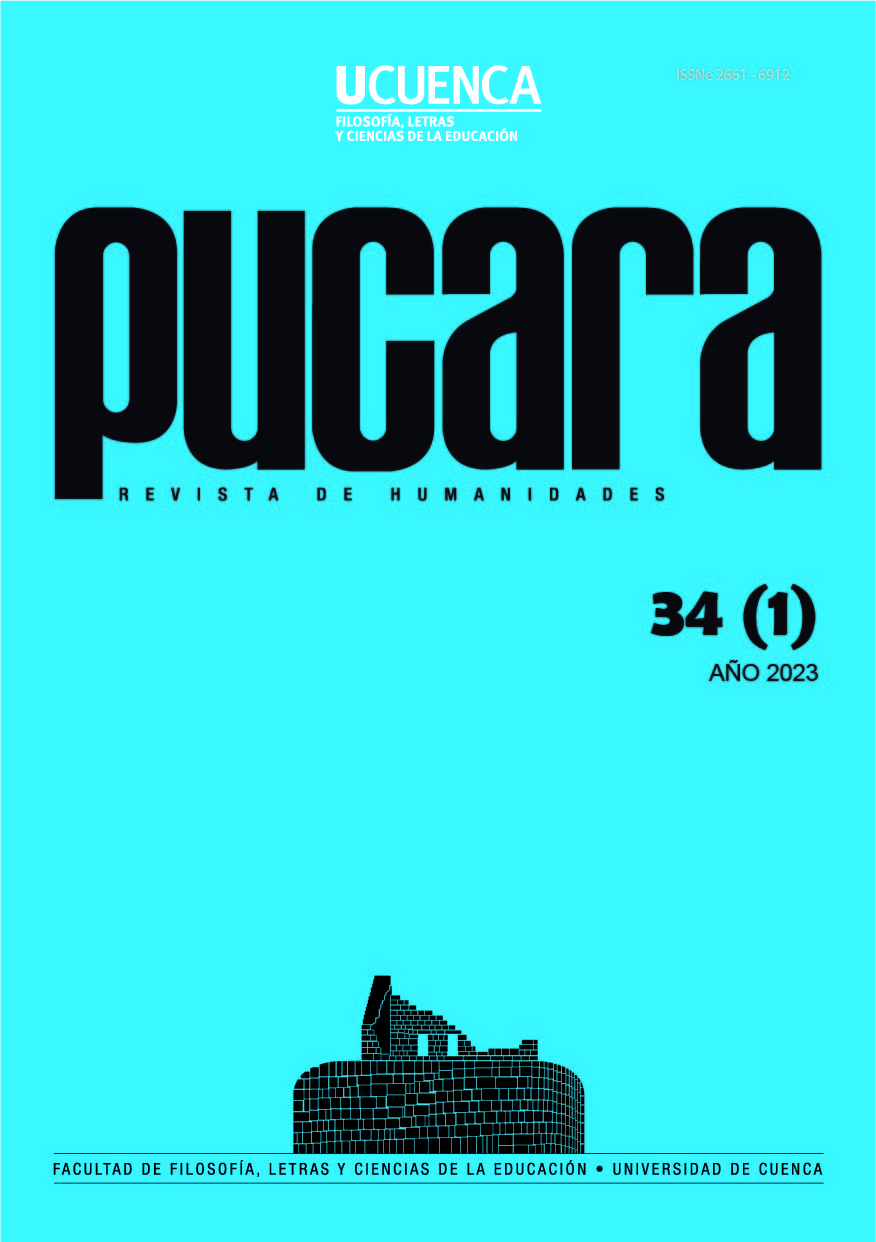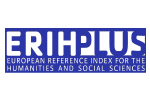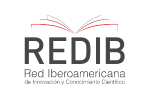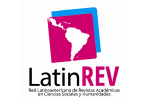La leyenda como recurso didáctico que motiva la lectura inferencial
DOI:
https://doi.org/10.18537/puc.34.01.10Palabras clave:
Lectura inferencial, planificación curricular, secuencia didácticaResumen
A través de la observación empírica se identificó una necesidad de mejora en las habilidades de lectura inferencial en una población de estudiantes de educación general básica de la Escuela Fiscal “Ignacio Escandón” en la ciudad de Cuenca, periodo lectivo 2020-2021. Así, el presente trabajo tuvo como objetivo mejorar la comprensión lectora a nivel inferencial en dicha población, con una metodología cualitativa se realizó un diagnóstico que sustentó la construcción de una secuencia didáctica basada en el recurso narrativo de la leyenda para motivar la participación de estudiantes en las sesiones de aprendizaje. Se contó con una población de 25 estudiantes a quienes se aplicó los instrumentos de diagnóstico y a quienes se realizó la intervención didáctica. Los hallazgos permitieron evidenciar que la secuencia didáctica diseñada apoyó la mejora en dimensiones que fortalecían la capacidad crítica y reflexiva de los estudiantes, por lo que se recomienda el uso de instrumentos similares para responder a las necesidades de los estudiantes a mediano y largo plazo.
Descargas
Citas
Alarcón, R. (2017). Las tradiciones orales manabitas como aporte al desarrollo de la comprensión lectora en estudiantes universitarios. Revista de Lenguas Modernas, 0(26), 7–9.
Barcenas Morales, M. C., Mercado, P., & Carrascal Torres, N. (2019). Mediaciones Tecnológicas para el desarrollo de la competencia
semántica comunicativa- lectura inferencial en básica primaria. Assensus, 4(6), 26–42. https://doi.org/10.21897/assensus.1723
Buslon, J. B., & Alieto, E. O. (2019). Lexical inferencing strategies and reading comprehension in English: A case of ESL third graders.
Asian EFL Journal, 22(1).
Cardona Torres, P. A., & Londoño Vásquez, D. A. (2016). El sentido de la lectura crítica en contexto. Katharsis, 22, 375. https://doi.org/10.25057/25005731.835
Cervera, Á. (2008). Estrategias discursivas para la comprensión lectora de textos. Diálogos de La Lengua, 7–10.
Ghaith, G., & El-Sanyoura, H. (2019). Reading comprehension: The mediating role of metacognitive strategies. Reading in a Foreign
Language, 31(1), 19–43. http://nflrc.hawaii.edu/rfl
Guerrero-Jiménez, G. (2017). Lecturas Viajeras. Ianua Editora. http://cvc.cervantes.es/ensenanza/biblioteca_ele/ciefe/pdf/03/cv
c_ciefe_03_0007.pdf
Herrera, L., Hernández, G., Valdés, E., & Valenzuela, N. (2015). DialnetNivelDeComprensionLectoraDeLosPrimerosMediosDeCole 6429438. Foro Educacional, 125–142.
Hoyos, A., & Gallego, T. (2017). DialnetDesarrolloDeHabilidadesDeComprensionLectoraEnNinos-7795812... Revista Virtual Universidad Católica Del Norte, 51, 23–45.
Meister, R., & de Santana, J. (2019). READING ALOUD : LINGUISTIC VARIATION AND THE Introdução. Ilha Do Desterro, 72(3), 41–62.
Ministerio de Educación del Ecuador. (2016). Lengua y Literatura en el subnivel Medio de la Educación General Básica. In Educación General Básica Media: Lengua y Literatura (p. 125). https://educacion.gob.ec/wpcontent/uploads/downloads/2016/12/GUIAS-DEIMPLEMENTACION-DEL-CURRICULO-DE-LENGUASUBNIVEL-ELEMENTAL.pdf
Morote, P. (2017). Las leyendas y su valor didáctico. Centro Virtual Cervantes, 391–403.
Parodi, G. (2010). Comprender y aprender a partir de los textos especializado en español. 23. http://cvc.cervantes.es/ensenanza/biblioteca_ele/ciefe/pdf/03/cvc_ciefe_03_0007.pdf
Rosero Morales, E. del R., Ruiz Morales, M. I., Pérez Constante, M. B., & Mayorga Jácome, L. C. (2020). Proceso didáctico y destrezas
en la lectura en niños de primer año de educación básica. Horizontes. Revista de Investigación En Ciencias de La
Educación, 4(16), 634–644. https://doi.org/10.33996/revistahorizontes.v4i16.142
Santolària Òrrios, A. (2019). La secuencia didáctica: un instrumento para escribir textos en Educación Infantil. Didáctica. Lengua y
Literatura, 31, 285–302. https://doi.org/10.5209/dida.65953
Seidenberg, M. S., & McClelland, J. L. (1989). A Distributed, Developmental Model of Word Recognition and Naming.
Psychological Review, 96(4), 523–568. https://doi.org/10.1037/0033-295X.96.4.523
Soto, C., Gutiérrez de Blume, A. P., Jacovina, M., McNamara, D., Benson, N., Riffo, B., & Kruk, R. (2019). Reading
comprehension and metacognition: The importance of inferential skills. Cogent Education, 6(1). https://doi.org/10.1080/2331186X.2019.1565067
Thamrin, N. R., & Agustin, S. (2019). Conceptual Variations on Reading Comprehension Through Higher Order Thinking Skills (Hots)
Strategy. English Review: Journal of English Education, 7(2), 93. https://doi.org/10.25134/erjee.v7i2.1777
Publicado
Cómo citar
Número
Sección
Licencia
Derechos de autor 2023 Alexandra Chumbe Mejía

Esta obra está bajo una licencia internacional Creative Commons Atribución-NoComercial-CompartirIgual 4.0.
Copyright © Autors

Usted es libre de:
 |
Compartir — compartir y redistribuir el material publicado en cualquier medio o formato. |
 |
Adaptar — combinar, transformar y construir sobre el material para cualquier propósito, incluso comercialmente. |
Bajo las siguientes condiciones:
 |
Atribución — Debe otorgar el crédito correspondiente, proporcionar un enlace a la licencia e indicar si se realizaron cambios. Puede hacerlo de cualquier manera razonable, pero de ninguna manera que sugiera que el licenciador lo respalda a usted o a su uso. |
| No comercial — No puede utilizar el material con fines comerciales. | |
| Compartir Igual— si remezcla, transforma o desarrolla el material, debe distribuir sus contribuciones bajo la misma licencia que el original. |
| Sin restricciones adicionales: no puede aplicar términos legales o medidas tecnológicas que restrinjan legalmente a otros a hacer cualquier cosa que permita la licencia. |
Mayor información sobre este acuerdo de autoría y licencia, transferencia de derechos o solicitudes de reproducción, pueden ser consultados en este enlace.












